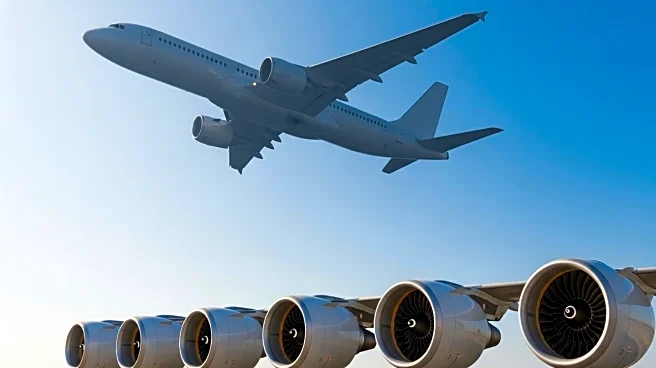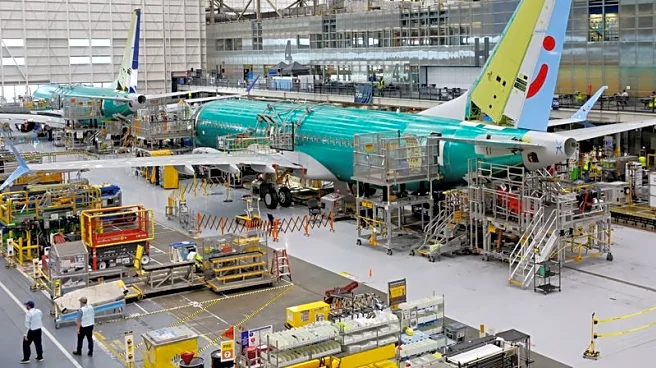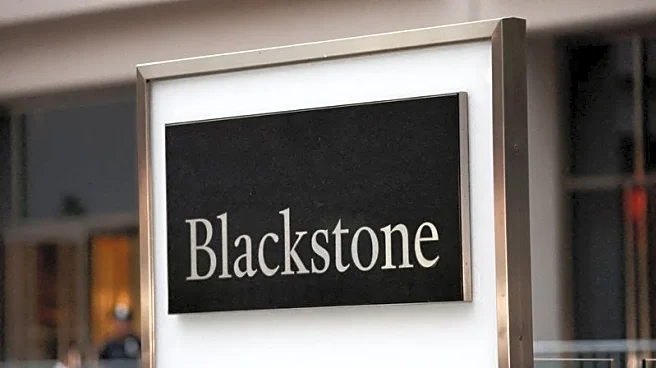What's Happening?
Lufthansa Group has announced plans to cut 4,000 jobs by 2030, primarily in administrative roles, as part of a strategic initiative to enhance efficiency through digitalization and artificial intelligence. The airline group, which includes Lufthansa, Austrian Airlines, Swiss, and Brussels Airlines, is experiencing strong demand for air travel despite supply chain constraints affecting aircraft availability. Lufthansa aims to deepen integration among its member airlines and eliminate redundant activities. The company anticipates increased profitability and is preparing for a significant fleet modernization, adding over 230 new aircraft by 2030.
Why It's Important?
Lufthansa's decision to reduce its workforce reflects broader trends in the aviation industry, where companies are leveraging technology to streamline operations and cut costs. The move could set a precedent for other airlines facing similar challenges, potentially leading to job losses and shifts in employment patterns within the sector. The planned fleet expansion indicates confidence in future growth, suggesting a robust recovery in air travel demand. This development may influence competitive dynamics in the industry, with Lufthansa positioning itself as a leader in efficiency and modernization.
What's Next?
Lufthansa will focus on implementing its strategic plans, including job reductions and fleet upgrades, while monitoring market conditions and adjusting operations accordingly. The company may engage with unions and employee representatives to address concerns related to job cuts and ensure a smooth transition. As the fleet modernization progresses, Lufthansa will likely explore new routes and expand its service offerings, potentially impacting global travel patterns. The airline's actions may prompt competitors to reassess their strategies, leading to increased investment in technology and operational efficiency.










